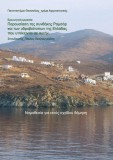Supervisor:
2012
“Ramsar Convention” is the treaty for the wetlands which was named after a city in Iran, where the first Convention took place in 1971. Ramsar is a non-governmental treaty that binds the Member States as regards the management of the wetlands of international importance. The treaty was negotiated in the 1960's by countries and non-governmental organizations concerned about the increasing loss and degradation of the wetlands and the migratory waterbirds. The mission of the Convention is the wise management of all wetlands through local and national actions and international cooperation programs, with the aim of achieving sustainable development throughout the world. The Convention includes lakes, rivers, swamps and marshes, wet grasslands and peatlands, oases, estuaries, deltas and tidal flats, areas near the shore of the sea, coral reefs, as well as sites that are a result of human intervention, such as fish ponds, rice fields and salt marshes.
One of the terms of the Ramsar Convention, is that each State Party shall designate at least one wetland of international territory as the basis of criteria defined by the contract to be included in the List of Wetlands of International Importance, which is otherwise known as the Ramsar List. Greece has 11 wetlands in the Ramsar list, which are:
1. The Area of Wetlands of Messolonghi
2. Wetland Amvrakikos Gulf
3. Wetland Lake Mikri Prespa
4. Lakes and Wetlands Volvi Koroneia (Lagada)
5. Wetland and forest Kotychi Strofylia
6. Wetland Lake Vistonida
7. Lake Wetland Ismarida
8. Wetland Ebro Delta
9. The artificial lake Kerkivis
10. French River Wetland, Axios, Loudias Aliakmonas and Delta
11. Wetland Delta Nestos
Although all the above are protected by the international Ramsar Convention, wetlands are threatened by extinction due to the changes in the hydrological regime, illegal and arbitrary building. However they are also highly threatened from residential reasons and the intensification of agriculture and fisheries.
According to the records of the Greek Biotope Wetland in Greece, Greece has got 400 wetlands left, which their extent exceeds over 2 million acres. In the last 35 years, our country has lost 61% of its wetlands due to unjustified drainage and therefore, it is imperative for Greece to protect and prudently manage them in with respect to the Natura and Ramsar contracts.

